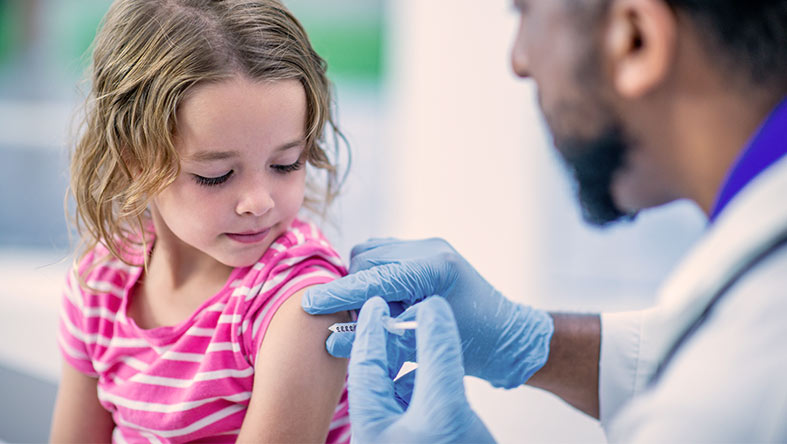Vaccines are an important part of your health care routine. Even if you are in good health, vaccines are the best way to protect yourself against disease. They can prevent outbreaks that are dangerous to the public at large, like the measles or the flu. By getting vaccines, you’re helping to protect others around you as well.
Vaccines make it less likely for you to get sick from certain diseases, if not prevent them altogether. Your provider will give you a shot that contains the weak or killed bacteria of a specific disease. Your body’s immune system will then create disease-fighting antibodies in response. You can’t “catch” that disease from getting a vaccine, but if you are exposed to it later on, your body is better prepared to fight it off before you get sick.
Here are 5 reasons why you should stay up to date on your vaccines:
- Immunizations are safe and effective. Vaccines are studied and fully tested many times by doctors, scientists, and even the government. They are safe to use and significantly reduce the rate of disease in communities.
- Vaccines can save you time and money. Being sick can be expensive and time consuming. You may have to take time off work, spend time at the doctor’s office and wait to get better. Not only that, but medical bills, prescriptions, and urgent care visits are costly. If you get a vaccine, you’re saving yourself time and money in the long run.
- You suffer from a chronic condition. People who have conditions like asthma, COPD, or diabetes have a weaker immune system and are more likely to get sick or suffer disease-related complications. Getting vaccines should be the extra step in your care plan to keep you healthy.
- Getting your shots is as important as diet and exercise. Vaccines are an important preventive care measure. You eat right, you exercise, and you should also get your vaccines. Disease can strike unexpectedly and staying current with your shots helps protect you.
- Vaccines help protect the people you care about. When you sick, you put others around you at risk. Younger children, especially infants, are most vulnerable to illness. They may not be able to get vaccinated for certain diseases yet, so getting your immunizations as parent helps to protect the health of your child. The same goes for elderly adults who are vulnerable to complications from illness. Think of vaccines as a barrier that prevent sickness; protecting yourself is a powerful way to shield others around you.
Your primary care provider is your first source of reliable information about what vaccines you and your family needs. Make sure your children are up to date on their recommended vaccines – especially before heading back to school.As part of National Immunization Awareness month, we offer resources to help you keep track of your child’s immunization history. Learn more about what vaccines your child needs by visiting our Children’s First page and downloading a free well child book.

